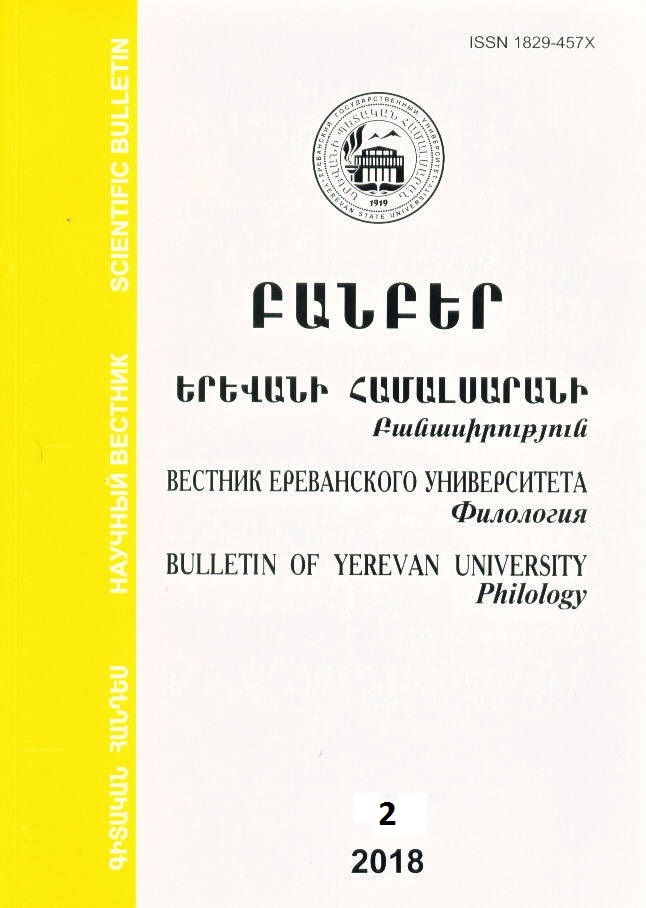Semantic Analysis of the Terms of Generational Theory
DOI:
https://doi.org/10.46991/BYSU:B/2018.9.2.045Keywords:
Abstract
The generational theory, created by William Strauss and Neil Howe, describes a theorized recurring generation cycle in American history. The theory discusses different values of people who grew up in different historical periods. The basis of the theory was introduced in the book named "Generations" (1991), which helped popularize the idea that people of a certain age group tend to share a particular set of beliefs, attitudes, values, and behaviors, as they grew under the same historical conditions. Hence, human values are formed not only because of upbringing but also under the influence of social facts, the entire context, in which the person grows up. The aforementioned is highly important in the context of cognitive science, especially in cognitive linguistics, since linguosemiotic analysis of the age groups, their verbalization, brings some clarity on the basis of the theory.
Downloads
Published
How to Cite
Issue
Section
License
Copyright (c) 2021 Bulletin of Yerevan University

This work is licensed under a Creative Commons Attribution-NonCommercial 4.0 International License.

